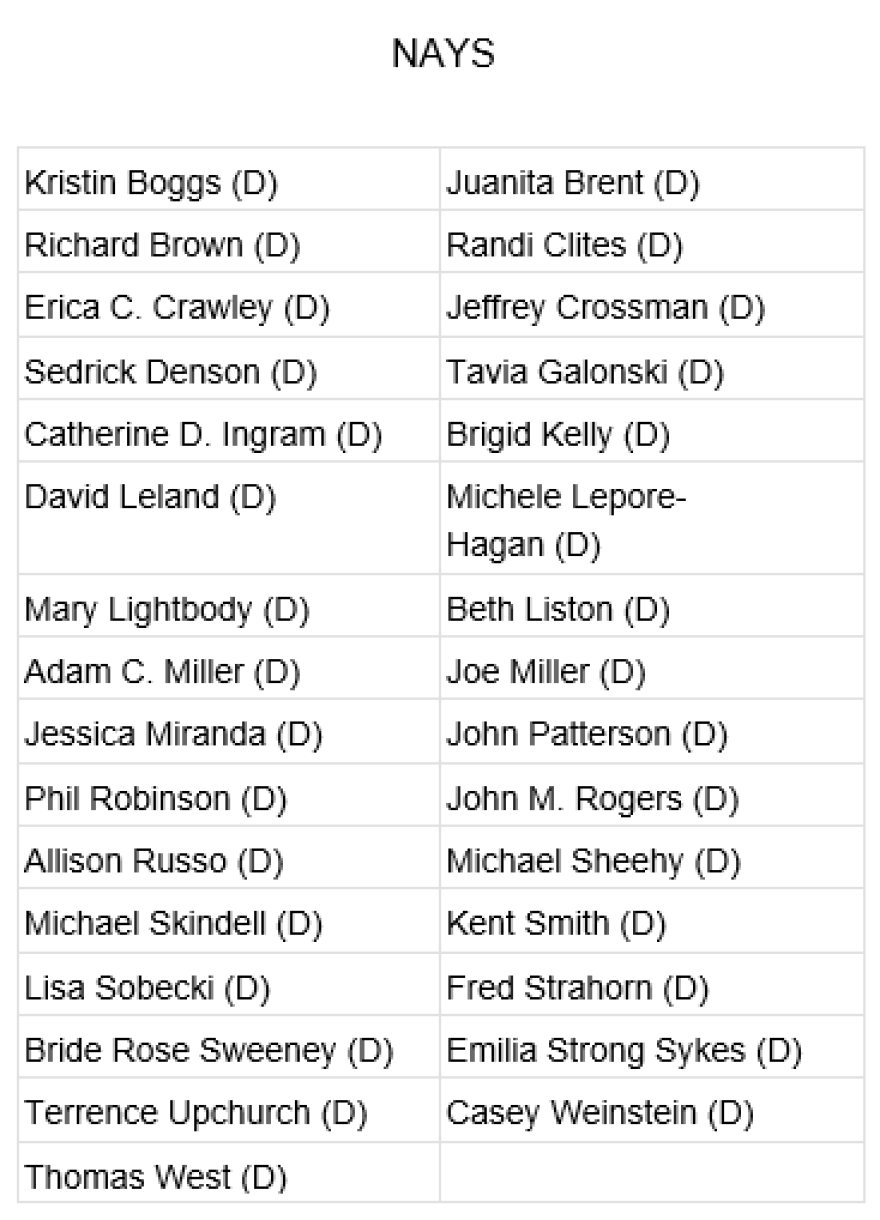Some Ohio lawmakers are backing a bill passed by the House that they said protects the religious rights of students. Opponents said it’s unnecessary and would hurt the academic integrity of schools.
State Rep. Tim Ginter (R-Salem) said this bill tells schools they cannot prevent students from engaging in religious expression through what they wear or how they complete schoolwork. State Rep. Catherine Ingram (D-Cincinnati) said it takes away from valuable instruction time.
"What we have in many cases is the opportunity for our students to say, with our social media, with their thumbs going, 'meet me at the flag pole at 10 o'clock.' Well, we’re in the middle of class. That becomes ok," Ingram said. "We are talking about instructional time that should not be disrupted.”
Democrats have supported religious liberty bills similar to this one in the past. But House Minority Leader Emilia Sykes (D-Akron) said this one goes too far. "It takes out the educational integrity and allows for the curriculum to be hijacked by religious doctrine rather than scientific fact."
The opponents said students could give incorrect answers to questions on tests or teachers will be forced to allow students to express their beliefs in tests and homework. But Aaron Baer, the president of the conservative Citizens for Community Values, said that’s wholly inaccurate. He said just look at the ten other states that have passed similar legislation for proof. "Students have never been allowed to cite religious freedom to turn in inaccurate homework, just like they’ve never been able to cite religious freedom to do drugs or something crazy like that. That’s not how these laws work. That’s not what the current jurisprudence is and it is certainly not how House Bill 164 would work."
Ginter agrees. As for the complaint that this bill would allow students to use social media to organize religious events during instructional time, he referred to testimony given by a father who said his daughter was upset because all of her fellow students were looking at pornography during lunch.
"I find it ironic that there is a fear that someone might use social media in school to invite another student to pray and yet those same social media accessories are being used to promote pornography. I think I would rather have a student inviting another student to pray at a flagpole than I would showing them a new porn site."
The bill passed the House on a party line vote, with Republicans voting for it, Democrats against it. The bill now moves to the Ohio Senate.






